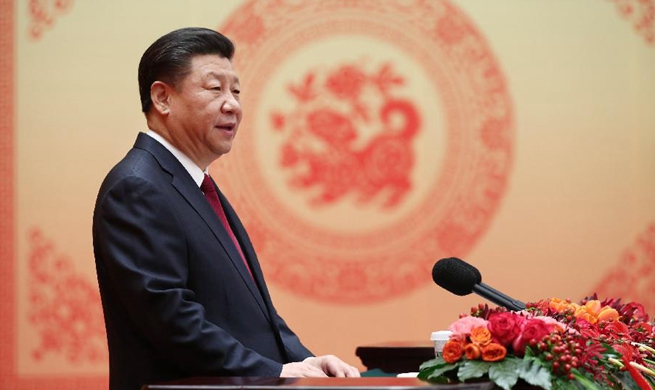WASHINGTON, Feb. 14 (Xinhua) -- A Stanford study published Wednesday in Science Advances claims that even the best implementation of the landmark Paris Agreement will probably still see extreme weather increase.
The Paris Agreement saw nearly all the countries in the world set an aspirational target of capping global warming at 1.5 degrees Celsius.
But even if the target is reached, "we still will be living in a climate that has substantially greater probability of unprecedented events than the one we're in now," Noah Diffenbaugh, a climate scientist at Stanford University and the paper's lead author, said.
His team found that global warming caused by human emission of greenhouse gases has increased the odds of the hottest events across more than 80 percent of the globe, while also increasing the likelihood of both wet and dry extremes, according to Stanford News Service.
The researchers found that if countries kept their minimum commitment to limit global warming to 2-3 degrees Celsius, it was still likely to result in a more than fivefold increase in probability of record-breaking warm nights over approximately 50 percent of Europe, and more than 25 percent of East Asia.
A 2-3 degree global warming would also likely result in a greater than threefold increase in record-breaking wet days over more than 35 percent of North America, Europe and East Asia.

















